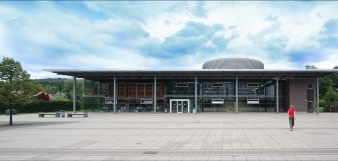Version [25499]
Dies ist eine alte Version von RenewableResourcesEngineeringMaschbau erstellt von JulianOsthues am 2013-04-17 13:33:16.
Renewable Rescources Engineering
Module description:
valid for matriculations after 2012
Lecturers:
- Prof. Dr.-Ing. Frank Beneke
- Prof. Dr.-Ing. Robert Pietzsch
Qualification aim:
- The students should get an founded overview of the recent utilization possibilities of renewable resources and renewable energies
- The essential knowledges and terms will be teached at an ready-to-use level
- Students should know different types of resources and their usage
- They should understand the energy conversions, material transformations and the technologies and components
- They should be able to analyze independently simple energy conversions by using thermophysical models and methods, for instance the calculation of power output of an hydropower plant, if the mass flow rate and the altitude difference are given
- Most of the theoretical explanations are accompanied by exercises during which examples are calculated
Content:
- fundamentals of thermodynamics of energy transformations: state quantities, flow rates, balance equations, kinds of energy, entropy, thermodynamical system as fundamental physical model
- fundamentals of renewable resources: types, availability, utilization, demands, conversion
- solar technology:
- photovoltaics and solar heat
- types of panels
- calculation of the sunray intensity
- solar updraft towers
- cooling with solar heat (absorption coolers)
- geothermal energy
- heat pumps and heat-to-power engines (Stirling, ORC, etc.)
- wind power plants, Betz' theory, design, on-shore/off-shore types
- hydropower plants, types of turbines, Segner's wheel as basic model
- biomass: types, agriculture, harvesting and compressing technologies
- biogas: composition, properties, production technologies
- combustion of biomass and biofuels, equipment, stechiometric theory
- biofuels and biolubricants, types, conversion technologies
- materials for industrial applications: biopolymers
Teaching methods: lectures 2 x 90 min. per week, exercises included
necessary knowledges:
- fundamentals of chemistry
- thermodynamics
usability: Renewable Resources Engineering (B.Eng.)
granting preconditions:
- written examination 120min
- granted credits: 5 ECTS
frequency: annually in the summer semester
workload: 150 hours ( present time: 60h + self study 90h) / duration of one teaching unit: 90 min.
supporting documents: scriptum
recomended publications: Quaschning, Volker: Renewable Energy and Climate Change. John Wiley and Sons Ltd., 2010
Diese Seite wurde noch nicht kommentiert.





